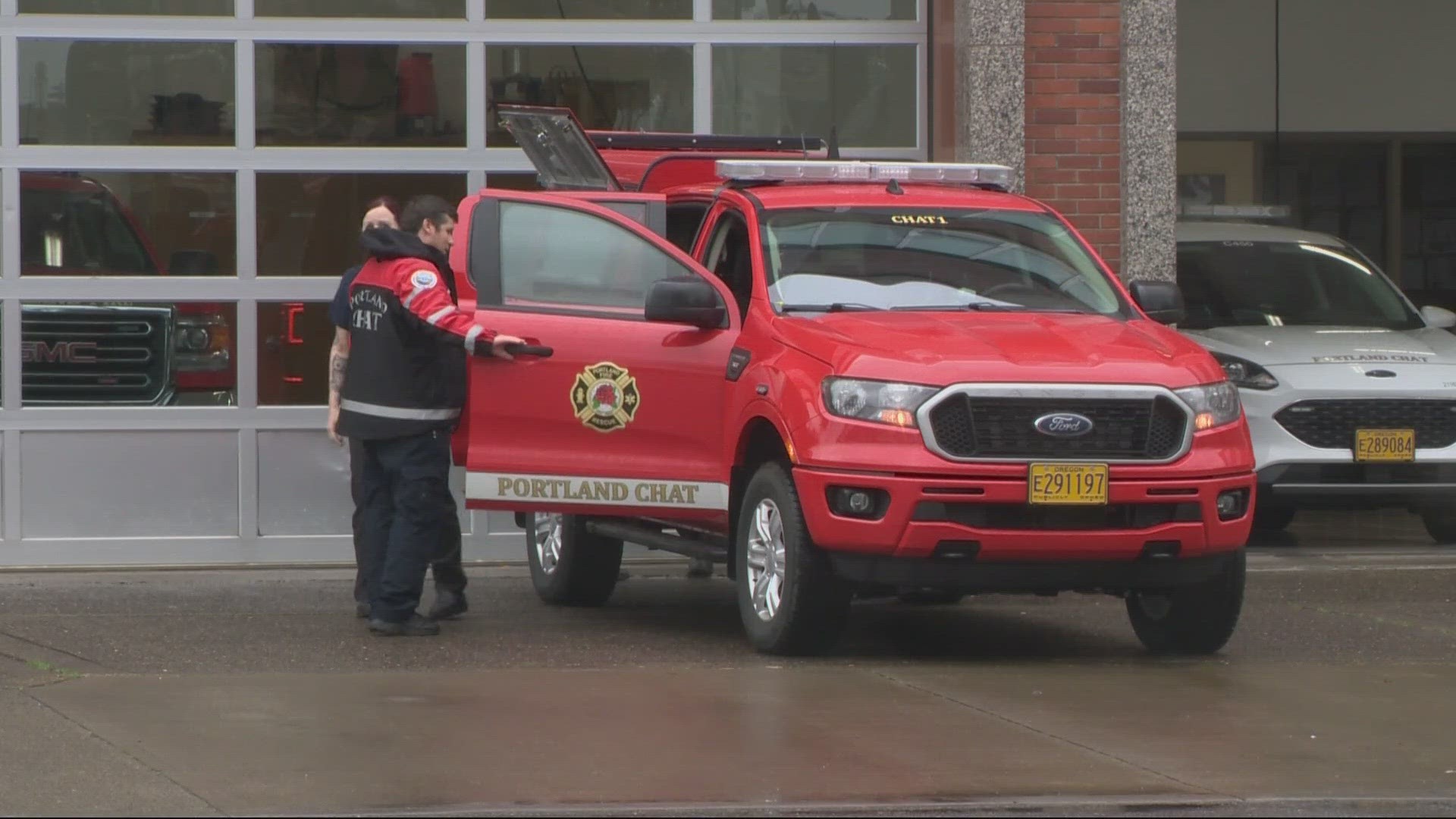PORTLAND, Ore. — Starting Jan. 16, Portland Fire & Rescue will begin a new response to drug overdoses downtown. A more nimble two-member emergency response team will be dispatched to all overdose calls. Fire officials hope it will ease the burden brought by the hundreds of overdose calls they receive every month.
Many young people in Portland share a similarly lonely road to addiction. For 20-year-old Trinity, she turned to fentanyl after aging out of the foster care system. Since then, she’s overdosed a handful of times.
“Honestly, it was very peaceful. I thought I was just really high and happy — and then, I woke up freezing cold and sick,” Trinity said.
She never went to the hospital for fear of withdrawal symptoms. Instead, she decided to build up a tolerance to the drug.
“I’ve been doing pretty good,” she said. Her last overdose was a couple of months ago.
But the frequency of overdoses by people like Trinity are putting a strain on Portland firefighters like Josef Kuehnast.
“It’s a tragedy, frankly, to see citizens of Portland and the community deteriorate around us … repeatedly responding to overdoses is not necessarily the best use of our resources,” Kuehnast said.
Last year, Portland Fire & Rescue responded to nearly 7,000 overdose calls. A third of them happened in the downtown core, according to the bureau. So, with the support of Commissioner Rene Gonzalez, who oversees the fire bureau, these firefighters are testing out a new approach — the two-person overdose response teams.
"Our crews are going to go, they’re going to meet this individual, they’re going to find out if they need more medical care — and if they don’t need more medical care, they’re going to leave them with additional Narcan; they’re going to connect them with services," said Stephenie Sullivan, PF&R's Community Health acting deputy chief.
The idea for the new program is to respond to overdoses with a smaller dedicated crew and vehicle that can more easily maneuver Portland streets. Overdose calls currently draw a full response with a large firetruck, according to PF&R, making the unit unavailable if a larger-scale emergency happens at the same time.
The team will be part of the bureau’s Community Health Assist and Treat (CHAT) program and be staffed by a paramedic and an EMT. CHAT 1 team members will respond to all overdose calls and low acuity calls downtown. If an overdose call comes in while the team is dispatched to a lower acuity call, it will divert to the overdose and a different CHAT team will respond to the other emergency.
The pilot program is scheduled to operate for six months and will be in service from 8 a.m. to 6 p.m., Monday through Thursday.
The announcement of this pilot program comes on the heels of the Multnomah County chair and commissioners asking state legislators this week for more money for drug treatment, along with urging them to approve a statewide ban on the public use of illegal drugs and more tools to prosecute drug dealers.
"We’re not alone in Portland; we’re not alone on the West Coast — it’s across the country, it’s this fentanyl crisis and it takes a lot of people to come together to create solutions to get our society on a pathway out of where we are," said PF&R Public Information Officer Rick Graves.
"Most people don’t want to live like this — they just need help," added Trinity.
There are also talks coming from both local and state government officials of declaring a statewide fentanyl emergency, which would make it easier and faster for places like Portland to get the resources and money they need to respond to this deadly crisis and ultimately save lives.
Download the KGW News app: Download for iPhone here | Download for Android here
Stream newscasts for free on KGW+ on Roku, Amazon Fire and Apple TV: How to add app to your device here
See a typo in this article? Email web@kgw.com for corrections

